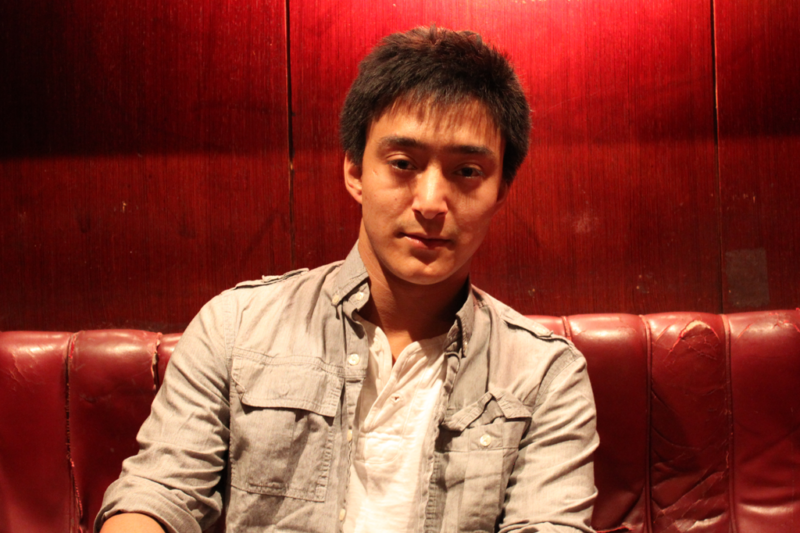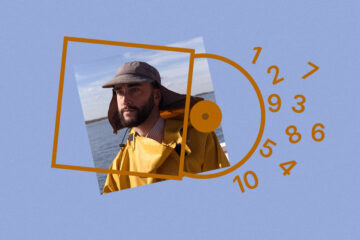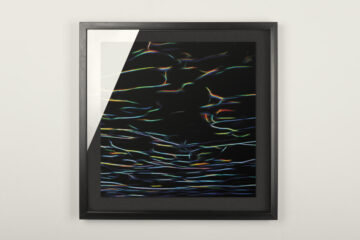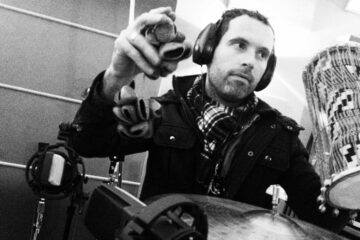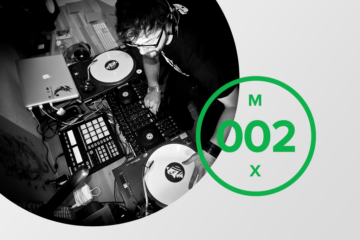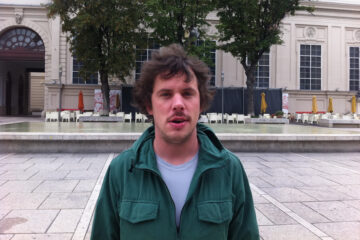Zach Saginaw, also known as Shigeto, is an American of Japanese descent. Raised in Ann Arbor Michigan he soon got in touch with the local scene that consisted of Mayer Hawthorne, Dabrye and many more. Early on it was already clear that the drums would be his instrument. Through his brother he got in touch with making beats. Saginaw stands for his fragile sound which he pairs with his live drumming, creating clouds of sound, which are beautifully produced. Ghostly International is the perfect outlet for Shigeto. He can reckon the mastermind Dabrye and Gold Panda amongst his label colleagues – forward thinking sound in its purity. Valentin Menedetter met him in Vienna.
You started playing drums at an early age. When did you get in touch with electronic music?
Shigeto: I grew up surrounded by my friends, in Ann Arbor, Michigan. We were all making electronic music at an early age. Mainly Hip Hop beats. But I was always the guy watching – I was the drummer they wanted to sample or they’d record me doing some break beats doing some jazz stuff and I was always very much a part of the scene but never really a part of it. Dabrye was working at Encore, a record shop. And then we had Athletic Mic League, it was Mayer Hawthorne who made the beats for them back in the day. So I was always very influenced and wanted to be a part of it, but a part of me was always scared to put my energy into machines. Growing up I was a super Jazz snob. Like this is the ultimate – it’s improvisation and classical technique combined.
What happened then?» It got to the point where I couldn’t even hold a toothbrush. I couldn’t play drums.«
Shigeto
Shigeto: I was living in London from 2003 to 2007 and I developed chronic tendonitis in both my forearms, partially from drumming and from my work. I was working as a specialty food monger – so I was using slices and cutting cheese. It got to the point where I couldn’t even hold a toothbrush. I couldn’t play drums. My brother came to London and brought a copy of Reason 2.5. So he talked me into trying it. So I started messing around with it and became obsessed with it very quickly. It was almost a way for me to cope with not being able to play drums.
So when the opportunity to put something out arose, did that encourage you to put more effort into making beats?
Shigeto: Yeah, I mean just properly finishing songs, trying to be like – ok, this is going to be out in the world now. It’s not just for me anymore, it is somehow, but if I’m going to share it on a professional level, even if it’s very small, it’s not just in my bedroom anymore.
Has producing with machines changed your creative process?
Shigeto: I think the electronics got me really into the subtleties that you can create with texture. The way that I produce electronic music is very hands-on. I’m like a caveman playing with futuristic instruments that I’ve never seen before. I’m not a super technical guy. It’s all done like when I’m playing drums – everything is recorded live I use all my own samples and I don’t use very advanced techniques to record it. It’s just trying to express myself and use what I have to create a sound I like. Being a drummer my whole life I never got to fully sharing my musical ideas. I was always adding what I had to someone else’s ideas.
Since you are a drummer, is it hard for you to concentrate on the stuff that is surrounding the beat – to build more on that than on the actual beat?» I’m like 90% self taught. I started playing drums at the age of three.«
Shigeto
Shigeto: I think as a drummer it made it more fun for me. I always dabbled around with piano and guitar; I had these melodies in my head. Once I started making this music it’s almost like the beat came so naturally that building the melodies and building the textures and building the palette of sounds that I was going to use was the most fun. And the beat was built around the selection of sounds that I had chosen. Once I had the skeleton I would invest most if my time into the melodic aspect and the atmosphere of the track.
You also studied Jazz…
Shigeto: Kind of, I dropped out. I’m like 90% self taught. I started playing drums at the age of three. I couldn’t play obviously, I was always banging on stuff…eventually my parents got me a tiny drum set when I was three. I was sitting in my closet for years, but when I was ten I was bored at home, so I went and I set them up, and I could play. It was just like my brain and my body had developed to the point where I understood what was going on. I studied with a guy named Vincent York, he was a Detroit Jazz musician; he was an Alto player though. But the stuff he taught me was all based on philosophy of feeling. He wasn’t a drum teacher. He just taught be to play what I felt.

